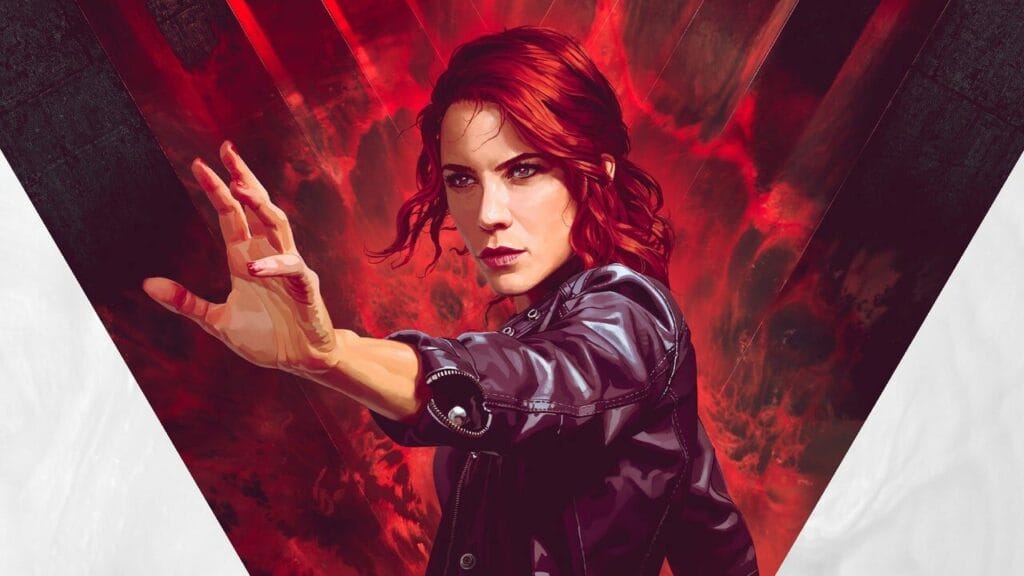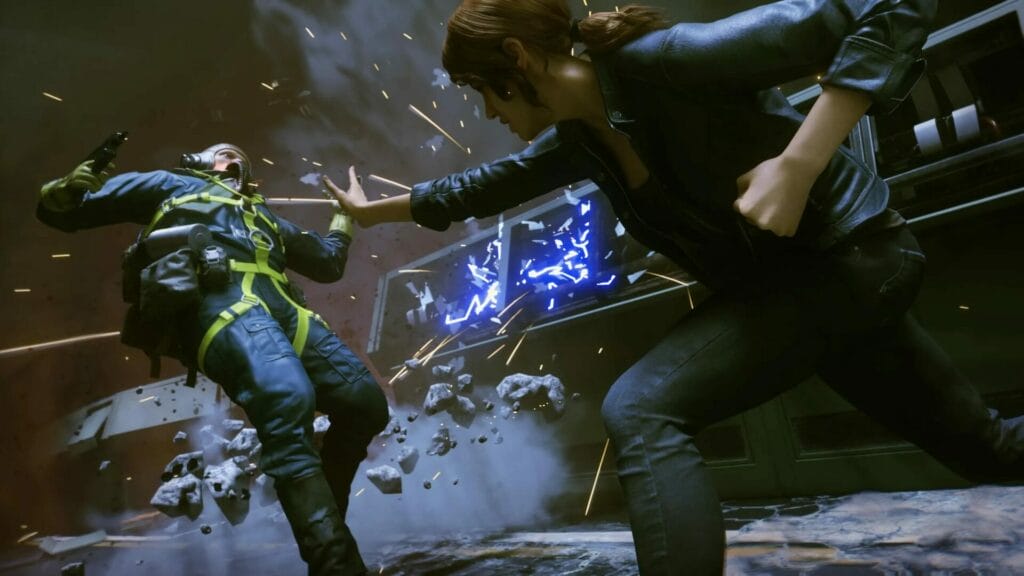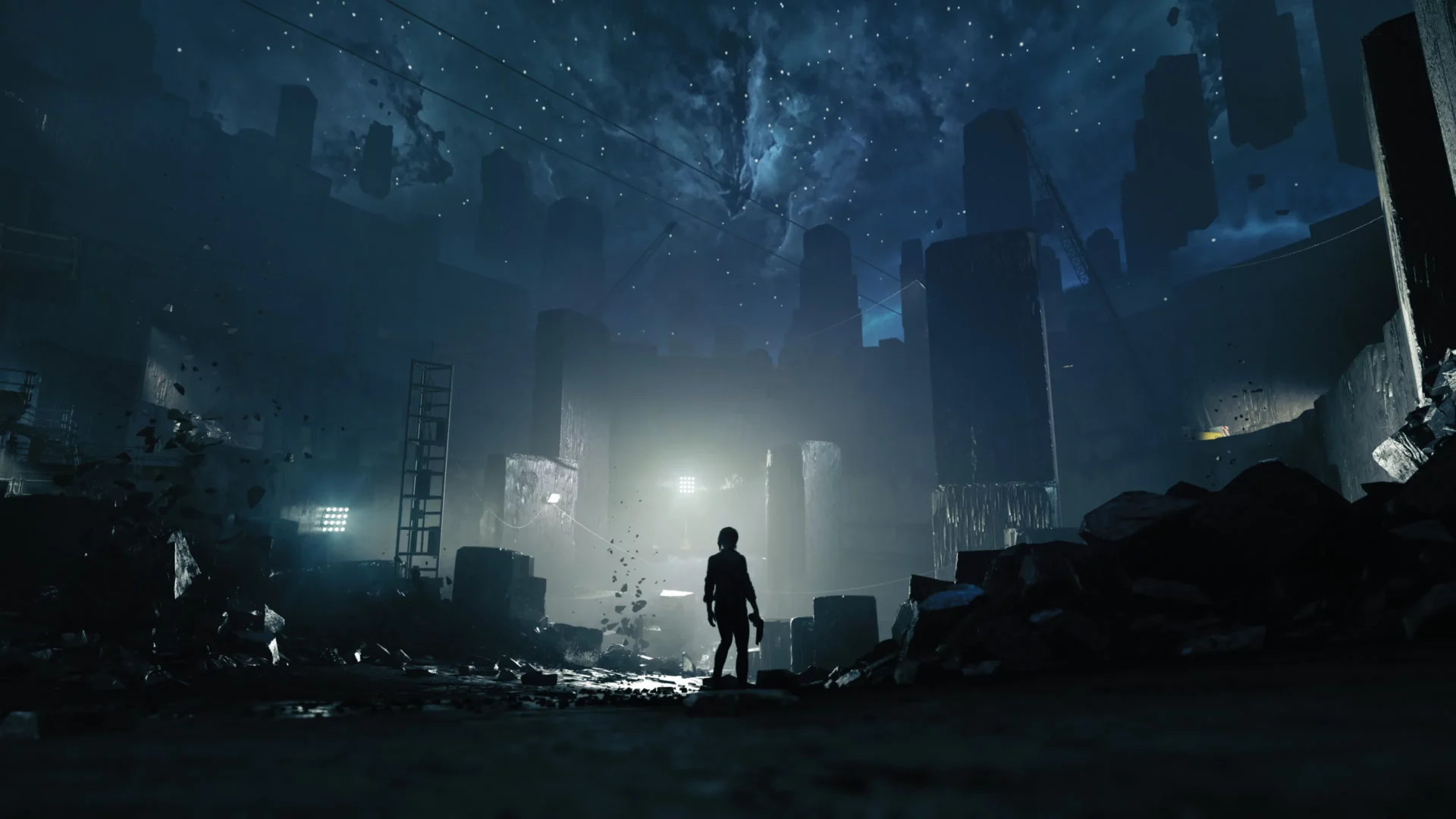Control is a third-person action-adventure game that blends supernatural elements with psychological thriller and sci-fi themes. Players take on the role of Jesse Faden, a woman searching for answers about her past, as she navigates the bizarre and ever-shifting world of the Federal Bureau of Control (FBC). The game is known for its surreal atmosphere, striking visual design, and the creative use of telekinetic powers in combat and exploration.
Plot and Setting
Control is set in the Federal Bureau of Control, a secretive government agency responsible for investigating and containing paranormal phenomena. The game takes place within the FBC’s headquarters, a massive and ever-changing building known as “The Oldest House.” Jesse Faden arrives at the FBC to find her brother, Dylan, who was abducted by the Bureau as a child after a paranormal event in their hometown.
Shortly after her arrival, Jesse is thrust into the position of Director of the Bureau following the mysterious death of the previous director. She must navigate the Oldest House, deal with a hostile force known as “The Hiss,” and uncover the truth behind her brother’s disappearance and her own connection to the Bureau.

Gameplay Mechanics
- Telekinetic Powers: The core gameplay mechanic of Control is Jesse’s supernatural abilities, which she gains through interactions with supernatural objects known as “Objects of Power.” These powers include telekinesis (the ability to throw objects or enemies), levitation (allowing Jesse to float over obstacles), and shield generation (where debris is used as a protective barrier).
- The Service Weapon: Jesse wields a unique shape-shifting firearm called the “Service Weapon,” which can transform into different forms, such as a pistol, shotgun, or sniper rifle. The weapon ties into the lore of the Bureau and plays a key role in the game’s combat.
- Exploration and Metroidvania Elements: The Oldest House is a sprawling, labyrinthine building filled with hidden areas, puzzles, and collectibles. As Jesse acquires new abilities, she can unlock previously inaccessible areas, encouraging exploration and backtracking similar to the “Metroidvania” genre.
- Combat: Combat in Control is fast-paced and dynamic, mixing gunplay with Jesse’s psychic abilities. Players can fling objects, hurl enemies into each other, and use the environment to their advantage, creating a fluid and chaotic battlefield.
- Side Quests and Collectibles: In addition to the main story, the game is filled with side quests, hidden secrets, and lore. These range from minor missions to entire story arcs that expand on the mysteries of the Bureau. Collectibles, such as documents and recordings, reveal backstory about the FBC, its research, and its employees.
Visuals and Audio
Control features a unique visual style that blends brutalist architecture with surreal, dream-like environments. The Oldest House is both stark and unsettling, with shifting walls, impossible spaces, and supernatural phenomena constantly altering its form. The game’s use of dynamic lighting, particle effects, and environmental destruction adds to the otherworldly atmosphere.
The audio design is equally impressive, with haunting ambient sounds, eerie whispers from the Hiss, and a memorable score that enhances the sense of mystery and tension. Voice acting, particularly by Courtney Hope as Jesse Faden, is also top-notch and adds emotional depth to the narrative.
Narrative and Themes
At its core, Control explores themes of power, identity, and control (both literal and metaphorical). The story delves into Jesse’s journey to find her brother and understand her own abilities while confronting the Bureau’s often morally ambiguous actions. The game plays with elements of surrealism and psychological horror, with a narrative that’s often cryptic and open to interpretation.
The Federal Bureau of Control is a place of bureaucratic coldness, where supernatural events are cataloged and controlled with clinical detachment. Throughout the game, Jesse uncovers the dark secrets of the Bureau, including its handling of paranatural phenomena, the history of the Oldest House, and the truth behind the Hiss invasion.

Reception and Impact
Control was critically acclaimed for its innovative gameplay, unique visual style, and compelling narrative. The seamless integration of supernatural powers into combat, combined with the enigmatic and ever-shifting world of the Oldest House, created a distinctive gaming experience. The game was particularly praised for its world-building, with many players intrigued by the mysterious lore of the FBC and the cryptic nature of the narrative.
Control won numerous awards, including the prestigious Critics’ Choice at the Golden Joystick Awards and was nominated for several Game of the Year awards. Its success also led to the release of two major expansions: The Foundation and AWE, which further expanded the lore and tied the game into other titles from Remedy Entertainment, like Alan Wake.
Have you played Control? What’s your favourite Part of it? We’d love to hear from you.
Other things you might want to know:
What is the story behind Control?
Control is set in the Federal Bureau of Control, a secretive government agency responsible for investigating and containing paranormal phenomena.
Is Control based off SCP?
Control does take inspiration from SCP in which the developers stated in interviews.
Are Control and Alan Wake connected?
Games like control and Alan Wake are not part of the Remedy connected universe.
Check out other articles by month:







